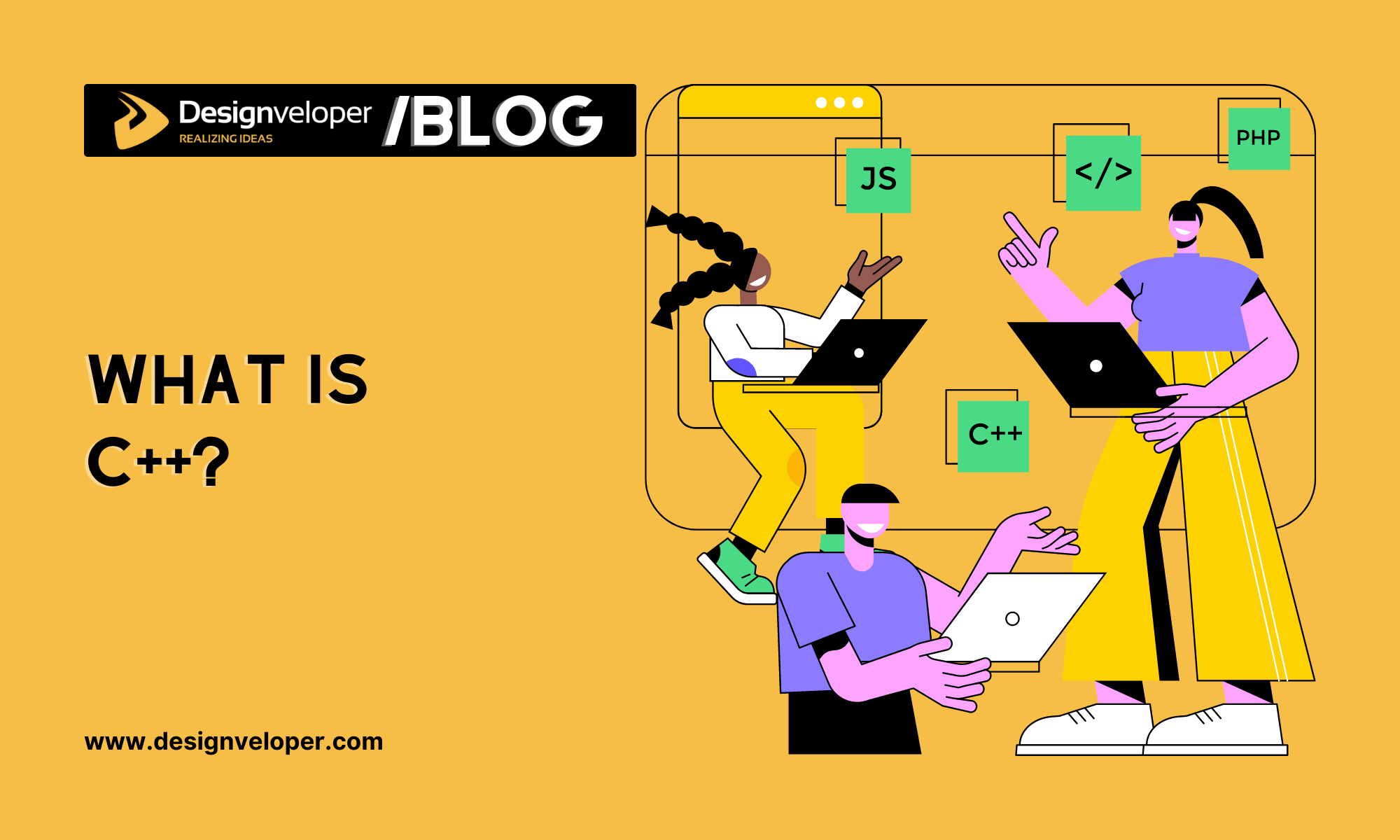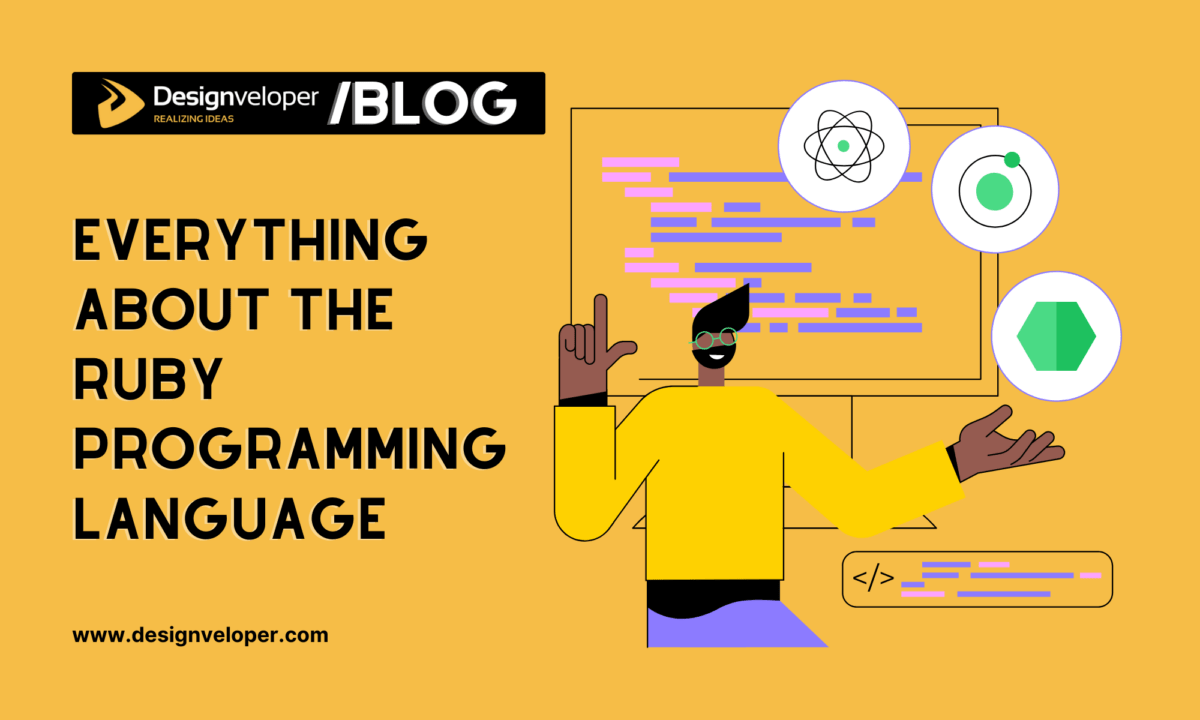
Almost every digital or electrical thing we use depends on some kind of code to work. Since the first programming languages were made, both technology and programming knowledge have come a long way. However, there’s always been a relative constant: C++ being one of the most popular programming languages. What is C++, though?
In this post, we’ll learn more about the programming language C++, including its definition and usage. We hope that by the time you’re done reading this, you’ll have a better idea of how important the language is not just to the IT industry but also to the whole world.
What Is The Programming Language C++?
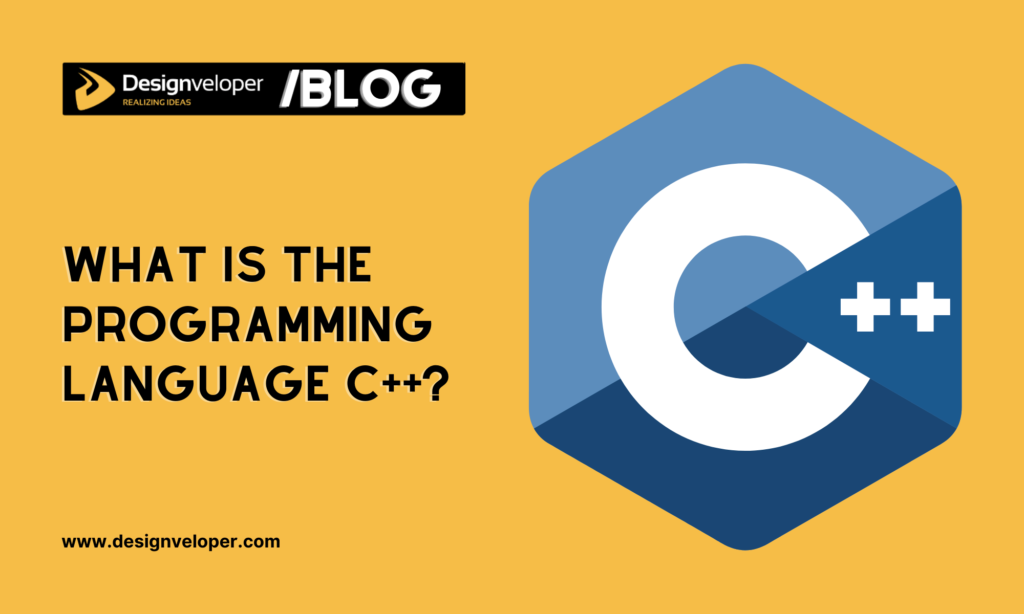
C++ has been around for almost 40 years, yet it’s still one of the most popular programming languages.
At first, C++ was just an addition to the C language, meant for creating operating systems. Over time, it became its own language, now used for many things, especially graphical applications. You can run C++ on different platforms, including servers, personal computers, cloud systems, and mobile devices. Plus, it gives programmers a lot of control over system memory and resources.
In 2024, 23% of programmers worldwide use it. People often call C++ the “Swiss Army Knife” of computer languages because of its versatility.
Recommended reading: Top 7 Web Development Languages To Use In 2023
History
C++ was once called “C with classes.” In 1983, the name changed to C++, which roughly means “one higher than C.” Bjarne Stroustrup, a Danish computer scientist, created and built C++. He wanted a programming language that could be as flexible as C but with more features.
Even though many languages have been updated or replaced, C++ has stayed relevant. The original version has continued to improve. Over the last 10 years, updates have been frequent. Major new releases and additions to the standard library happened in 2011, 2014, and this year.
The 7 Advantages Of C++
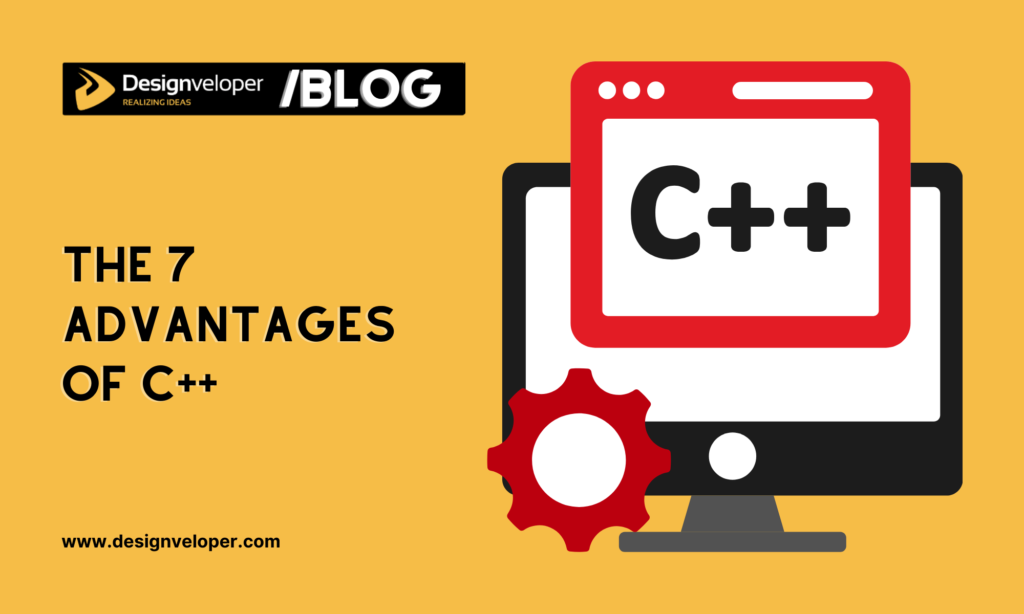
Why is the programming language C++ still used when so many other languages have been made since 1979? And why do some programmers use it instead of languages that are newer, better, and more popular?
In this part of the article, we’ll break down some of those reasons. We’ll talk about the benefits of C++, which are what make it useful in the modern world.
1. Object-Oriented
Object-oriented programming languages organize the different bits of code they create into groups called objects. This reduces the need to repeat code and makes the program more flexible and scalable. Once you know the language well, it will be faster and easier for you to write code in C++.
2. Efficiency
C++ is a “low-level” programming language. This means that it doesn’t hide away from the architecture the computer uses (1s and 0s). Its structure is also similar to that of the processor. In this way, it keeps the straight-forwardness and simplicity of this “low-level” function.
3. Popularity
How popular a programming language is is important. It shows whether or not there is a lot of documentation, tutorials, classes, and other ways to learn it. Programming “problems” can be solved in many different ways, so there are always options available. C++ is used on many different platforms, which is why many companies want to hire people who are fluent in the language. Because of this, most software engineers need to know how to use C++.
Recommended reading: Top 5 Ios App Development Languages: How to Choose the Right One?
4. Versatility
Unlike other programming languages, C++ has been able to stay relevant, useful, and important. This is because it has been able to adapt to changing needs in the same way that those needs have changed over time. It’s also different from other languages in that it is very flexible and has grown quickly to meet the needs of programmers and software.
Further, it’s very flexible because so many have been using for so long. As a result, it’s very compatible with the vast majority of other languages and new applications. From facilitating the building of the infrastructure on the client side and to the communication between processors and across networks, it can do it all.
5. Independence
C++ is a machine-independent language. A C++ program only needs to be written once, and it will work on all platforms, like Windows, MAC, and Linux. Still, it is not platform-independent. This means it makes a different.exe file for each platform it works on.
6. Community
Programming languages like C++ have thriving online communities of programmers who help each other solve coding problems and share best practices. This is one of the best things about any programming language for new programmers because it lets them teach others. It is well known that it has a very active online community. This is mostly because experienced programmers have used and improved it for decades.
7. Career Potential
Even though this isn’t unique to C++, the fact that it has so many different uses (and, as a result, needs for skilled developers) makes it one of the best languages on which to build a career as a programmer. In fact, the best job search website in the United States says that the average base pay for a C++ coder is $125,600 per yeat. This is much higher than the pay for many other well-known professional jobs, like teaching and lower-level business management.
Top 5 Usages Of C++
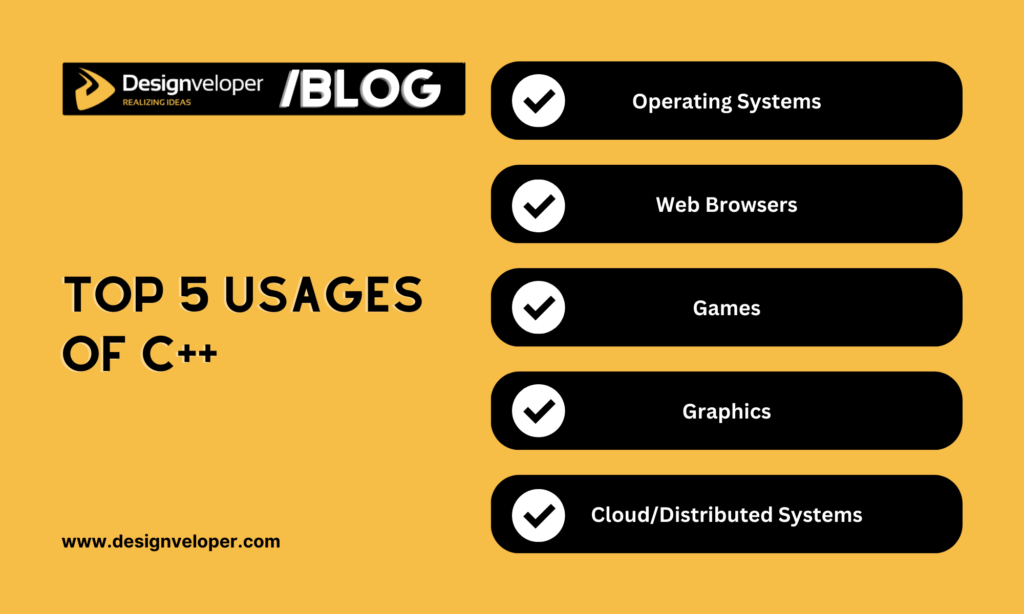
Almost every app on the market today uses C++ in some way, whether it’s Windows, a web browser, your favorite game, or a program for editing videos. Below are some interesting usages of C++:
1. Operating Systems
From the beginning, C++ was made with system programming and performance in mind. As a result, most of the most popular operating systems today, such as Windows, Linux, Android, Ubuntu, and many more, use C++ as their main programming language.
2. Web Browsers
People don’t want to wait for their websites to load, so it’s important for web browsers to have a fast execution speed. Because of this, the majority of browsers use C++ to make their rendering functions. The whole time that Mozilla Firefox is being made, C++ is used. C++ is used to make a number of Google apps, such as Chrome and the Google File System.
FURTHER READING: |
1. Top 5 Best Android App Development Languages for 2023 |
2. The 4 Programming Languages Used by Top Companies |
3. 6 Best Trending Programming Languages for 2023 |
3. Games
One of the benefits of using C++ is that it can handle resources quickly and efficiently because it is fast and close to hardware. It is the most popular tool for video games and game development engines because of this. The language is used to make a big part of both the Unity Engine and the Unreal Engine, for example.
4. Graphics
C++ makes it easy to implement models for real-time image processing, mobile sensor apps, and visual effects. It makes the language a popular choice for making these kinds of graphical tools and apps. This way of building and developing software can be used in many different fields, such as character design, animation, environment design, motion graphics, and virtual reality.
5. Cloud/Distributed Systems
Systems that are used a lot for cloud storage need to have functions that are more like those of hardware. So, C++ is now the most popular language for building cloud storage systems. It can give these systems the multithreading features they need to build applications that can run at the same time and handle heavy loads. The main programming language used to make Bloomberg’s distributed RDBMS application is C, however, C++ is used to make the application’s development environment and library collection.
FURTHER READING: |
1. What is ASP.NET? |
2. Everything About the Ruby Programming Language in 2023 |
3. Everything About the Dark Programming Language |
4. What is Kotlin: Definitions, Strengths & Usages |
Conclusion
By far, the best way to learn C++ as a programming language is to start writing code in it and see how it works. If you’ve never heard of or used C++ before, you should definitely give it a try and see what you can do with it. This is true whether you work in the game development industry, build applications with graphical user interfaces, or write the code that is used to make web browsers and online databases.






Read more topics




























